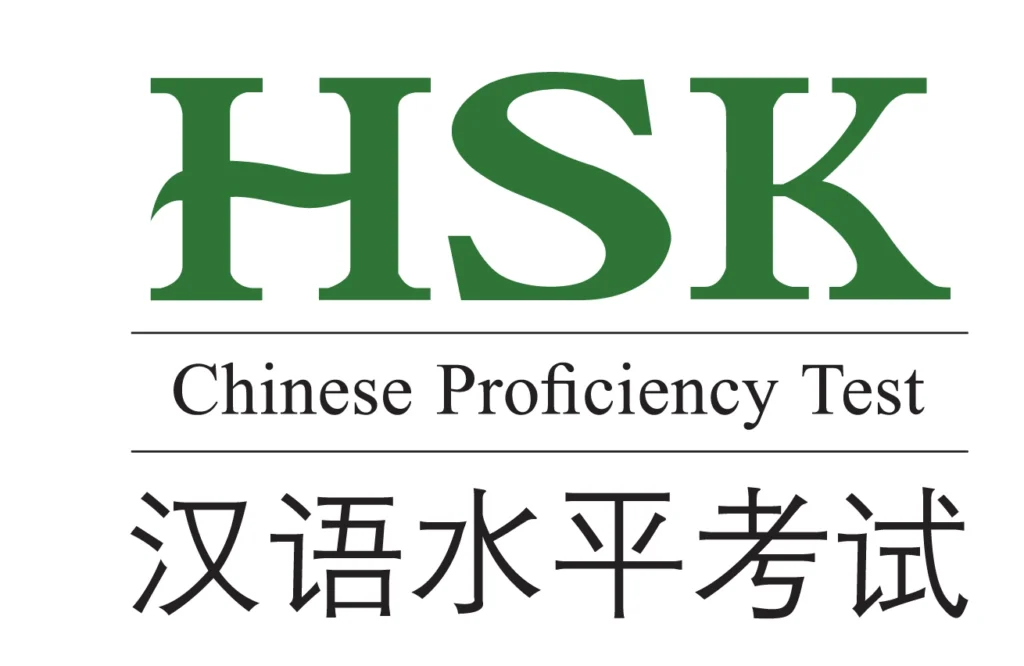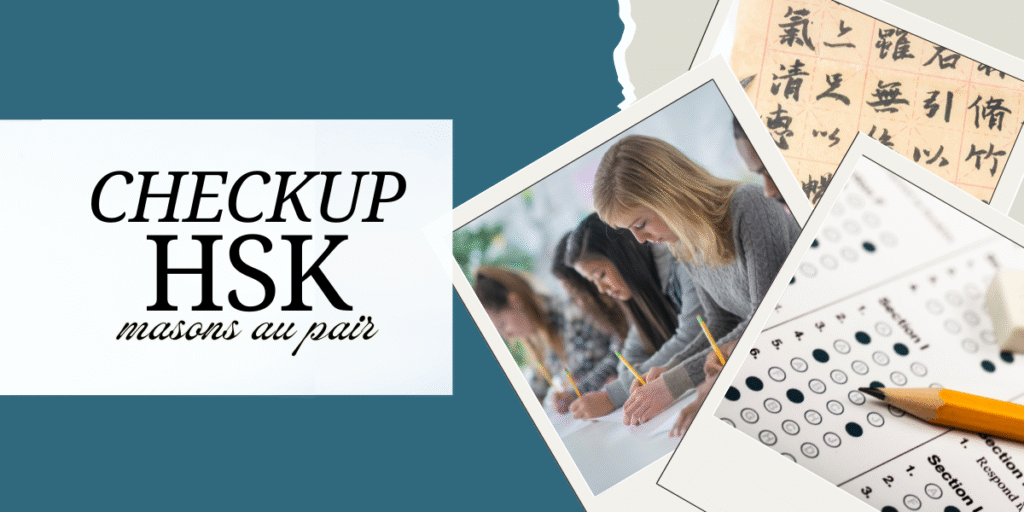Mandarin Chinese is not only one of the most spoken languages in the world, but also a key to unlocking countless opportunities in education, career development, and cultural exchange. As the official language of mainland China, Taiwan, and one of the six official languages of the United Nations, Mandarin plays a central role in today’s global economy and international relations. For international students, au pairs, interns, or anyone interested in studying abroad, participating in an exchange program, or pursuing a language immersion experience, learning Mandarin Chinese is a highly valuable and future-proof investment.
By choosing to study Mandarin in China, learners gain full access to an immersive environment where they can develop fluency, improve pronunciation, practice speaking, and master both simplified Chinese characters and pinyin. China is home to some of the world’s best language schools, offering structured language courses with experienced native-speaking tutors and preparation for official exams like the HSK (Hanyu Shuiping Kaoshi)—the most recognized language proficiency test for non-native speakers of Mandarin.
Whether your goal is to enhance your communication skills, qualify for a student visa or work and travel visa, strengthen your language proficiency for professional reasons, or simply connect more deeply with your host family and local community, learning Mandarin Chinese in China offers an authentic, rewarding, and transformative experience. It’s the ideal way to gain a deeper understanding of Chinese culture, improve your language skills, and open doors to long-term opportunities in international education, childcare, and cross-cultural collaboration.

1. Why Take a Chinese Language Proficiency Test?
A. Academic and Career Benefits
Passing standardized exams like the HSK (Hanyu Shuiping Kaoshi) or TOCFL (Test of Chinese as a Foreign Language) is a major milestone in your Mandarin learning journey. These Chinese language proficiency tests are officially recognized by universities, employers, and government programs across mainland China, Taiwan, and many other countries. Earning a high score not only strengthens your résumé and proves your ability to read, write, and speak Mandarin, but also enhances your chances of being accepted into international study programs, language exchange opportunities, and even job placements requiring Mandarin fluency.
For international students, au pairs, or professionals aiming to live or work in China, passing the HSK or TOCFL validates your language skills and demonstrates your readiness for language immersion, academic coursework, or professional communication in a Mandarin-speaking environment. Whether you’re applying for a study abroad semester, a Chinese university degree, or a Mandarin language course, these certifications are often a key requirement—and a powerful boost to your language learning credentials.
B. Visa, Scholarships, and Residency
Many Chinese universities, language schools, and Mandarin training centers require official language certifications such as the HSK (Hanyu Shuiping Kaoshi) for program admission. Whether you’re applying for a degree program, a short-term language course, or an academic exchange, proof of Mandarin proficiency through the HSK is often a mandatory requirement. The HSK test evaluates your skills in reading, writing, listening, and grammar, making it a reliable benchmark for both academic and professional contexts.
Beyond admissions, the Chinese government uses HSK scores to assess eligibility for scholarships, such as the Confucius Institute Scholarship or Chinese Government Scholarship, and to process applications for X2 student visas, residence permits, and other official documentation.
A certified HSK level can significantly simplify your path to studying in China, extending your stay, or even applying for internships and jobs that require proven Mandarin language skills. For anyone planning long-term engagement in mainland China or Taiwan, passing the HSK is not just recommended—it’s essential.
2. Overview of the Most Popular Chinese Language Tests
A. HSK – Hanyu Shuiping Kaoshi
The HSK (Hànyǔ Shuǐpíng Kǎoshì / 汉语水平考试) is the official Mandarin Chinese language test designed for non-native speakers who wish to certify their language proficiency. Administered by the Chinese Ministry of Education, the HSK is recognized globally by universities, employers, and government institutions as the standard benchmark for assessing Chinese language skills. It consists of six levels—from HSK 1 (basic vocabulary and sentence structures) to HSK 6 (advanced fluency and full comprehension of complex texts and discussions).
The exam evaluates key language competencies, including listening, reading, and writing, making it ideal for learners who want to measure their overall mastery of Mandarin Chinese. With the latest reform, a new version of the HSK has also integrated speaking skills (口语考试), making it a more comprehensive indicator of a learner’s ability to communicate effectively in real-life situations. Whether you’re preparing for university admission, a language immersion program, or a job that requires fluent Mandarin, the HSK is an essential tool for demonstrating your progress and achieving your language learning goals.
B. HSKK – Hanyu Shuiping Kouyu Kaoshi
The HSKK (Hànyǔ Shuǐpíng Kǒuyǔ Kǎoshì / 汉语水平口语考试) is the official spoken Chinese test designed to assess your oral proficiency as a non-native speaker. Often considered the oral counterpart of the HSK, the HSKK focuses specifically on your ability to speak Mandarin clearly, fluently, and accurately. It is commonly taken alongside the HSK exam, especially by learners applying for Chinese university programs, Confucius Institute scholarships, or Mandarin language immersion programs.
The HSKK is divided into three levels—Beginner (初级), Intermediate (中级), and Advanced (高级)—each corresponding to specific benchmarks in spoken Chinese fluency. The test evaluates key aspects of verbal communication, including pronunciation, intonation, sentence structure, and the ability to respond to spoken prompts naturally and coherently. For many international students, au pairs, and language learners, passing the HSKK alongside the HSK adds a strong advantage to their application, demonstrating well-rounded Mandarin language skills, including both written and spoken communication.
If your goal is to study, live, or work in mainland China or Taiwan, taking the HSKK ensures that you can converse effectively with native speakers, participate in classroom discussions, and navigate daily interactions with confidence.
C. TOCFL – Test of Chinese as a Foreign Language
The TOCFL (Test of Chinese as a Foreign Language) is an official Mandarin Chinese proficiency test administered by the Taiwanese Ministry of Education. Unlike the HSK, which is used primarily in mainland China, the TOCFL is widely recognized in Taiwanese universities, government agencies, and professional settings. It serves as a key requirement for international students, exchange participants, and professionals who plan to study, work, or live in Taiwan.
Structured into multiple levels—from basic proficiency to advanced fluency—the TOCFL assesses listening, reading, and optionally speaking skills, much like its mainland counterpart. Many language schools in Taiwan, as well as scholarship programs and residency applications, rely on TOCFL scores to evaluate a candidate’s Mandarin language proficiency. For learners specifically focused on Taiwanese culture, traditional Chinese characters, and Taiwanese Mandarin pronunciation, the TOCFL is the ideal certification.
Whether you’re enrolling in a language course in Taipei, applying for a Taiwan Ministry of Education scholarship, or seeking employment in a Mandarin-speaking environment in Taiwan, the TOCFL is a credible and practical alternative to the HSK for demonstrating your language skills and supporting your study abroad or immigration goals.
D. BCT – Business Chinese Test
If you’re planning a career in China, working with a Chinese company, or entering the world of international business, the BCT (Business Chinese Test) is the ideal certification to validate your Mandarin proficiency in a professional context. Designed specifically for non-native speakers, the BCT evaluates your ability to understand and use business-related vocabulary, engage in workplace communication, and navigate real-world corporate scenarios in spoken and written Chinese.
Recognized by a growing number of employers in China and abroad, the BCT is especially relevant for those in fields such as international trade, marketing, finance, consulting, and logistics. It measures your competence in handling tasks such as writing business emails, participating in meetings, negotiating deals, or understanding internal communications—all in Mandarin Chinese.
With two available formats—BCT-A (for daily business communication) and BCT-B (for advanced professional fluency)—this exam offers flexibility depending on your language level and career goals. For professionals, students in business Mandarin programs, or anyone seeking to improve their language skills for the workplace, the BCT provides a clear advantage in the competitive job market and helps build confidence in using Mandarin in business environments.
E. YCT – Youth Chinese Test
The YCT (Youth Chinese Test) is a standardized Mandarin Chinese proficiency test specifically designed for younger learners, typically under the age of 15. Developed by Hanban—the same institution behind the HSK—the YCT aims to assess basic Mandarin skills in listening, reading, and speaking within a school or academic environment. It’s ideal for children and teenagers who are beginning their language learning journey and need a structured way to measure their progress.
Widely used by international schools, bilingual programs, and language immersion schools around the world, the YCT is divided into different levels that correspond to age-appropriate vocabulary, grammar, and sentence structure. It helps young students build a solid foundation in Chinese pronunciation, characters, and day-to-day conversational skills.
For parents, educators, and institutions seeking to introduce students to Mandarin Chinese in a manageable and encouraging way, the YCT offers an engaging and internationally recognized tool. It’s also a great first step toward more advanced certifications like the HSK, helping children gradually transition from beginner to fluent Chinese language learners in both academic and real-life contexts.

3. Which Test Should You Choose?
A. For Students Applying to Chinese Universities
If you’re planning to apply to a Chinese university for a bachelor’s, master’s, or PhD program, taking the HSK (Hànyǔ Shuǐpíng Kǎoshì) is essential. Most degree programs in China require international applicants to submit proof of Mandarin language proficiency, and the HSK is the most widely accepted certification. In general, HSK Level 4 is the minimum required for undergraduate programs, while HSK Level 5 or 6 may be necessary for more advanced or competitive fields such as law, business, medicine, or engineering.
In addition to the written test, many universities—especially those with language-intensive courses—also request the HSKK (spoken Chinese test) to evaluate your oral communication skills. The HSKK is particularly important if your program involves class discussions, oral presentations, or group work in Mandarin Chinese.
Having both the HSK and HSKK demonstrates a complete set of language skills—reading, writing, listening, and speaking—making your application stronger and increasing your chances of receiving admission, scholarships, and a student visa (X2). Preparing early for these exams through a recognized language school, Chinese classes, or an official test preparation program can give you a significant advantage in the university application process.
B. For Professionals Working in China
If you’re a professional planning to work in China or with a Chinese company, demonstrating advanced Mandarin proficiency is a major asset for your career development. Two key certifications stand out: the BCT (Business Chinese Test) and the HSK at advanced levels (Level 5 or 6). These exams are specifically designed to assess your ability to function in professional settings, including business meetings, negotiations, presentations, and formal correspondence—all in Mandarin Chinese.
The BCT focuses on real-world business vocabulary, industry-specific expressions, and workplace communication. It is especially useful for professionals in international trade, finance, marketing, consulting, and logistics who interact regularly with Chinese-speaking clients, partners, or government officials.
On the other hand, the HSK Level 5 or 6 certifies a high level of fluency in Chinese, including the ability to read newspapers, understand speeches, write essays, and follow complex discussions. This makes it ideal not only for business contexts but also for positions in government relations, diplomacy, academia, or management roles in China-based organizations.
Holding one or both of these certifications significantly boosts your employability, enhances your résumé, and may even be required when applying for work visas or residency permits in China. In competitive job markets, proven Mandarin language skills can give you the edge to stand out and succeed in a fast-growing Chinese-speaking business environment.
C. For Teenagers and Beginners
For teenagers, young learners, or complete beginners in Mandarin Chinese, starting with the YCT (Youth Chinese Test) or the beginner HSK levels (HSK 1 and HSK 2) is the best way to build a solid foundation and gain confidence. These exams are specifically designed for learners who are just beginning their language learning journey and want a clear, structured way to measure their progress.
The YCT is ideal for children and adolescents under 15, especially those enrolled in international schools, language immersion programs, or bilingual education systems. It evaluates basic skills in listening, reading, and speaking, using simplified Chinese characters and age-appropriate vocabulary. It helps younger learners get comfortable with Chinese tones, pronunciation, and basic sentence structures in an academic context.
For older beginners or adult learners, HSK Levels 1 and 2 offer a progressive introduction to Mandarin vocabulary, grammar, and pinyin. These early levels are useful for tracking your development, setting achievable goals, and eventually moving on to higher levels of fluency.
Starting with these beginner-friendly exams allows learners to stay motivated, celebrate milestones, and reinforce their skills through recognized, official certifications.
Whether you’re studying in a language school, learning online, or living in China or Taiwan for a short-term program, the YCT and beginner HSK levels are excellent entry points into the world of Chinese language learning.

4. How to Prepare for Chinese Language Tests
A. Enroll in a Language School
One of the most effective ways to learn Mandarin Chinese is by enrolling in a certified language school that offers structured programs and professional guidance. Studying in an established institution like XMandarin Language School in Chengdu, for example, provides a complete learning environment where you benefit from regular Mandarin classes, mock exams, and personalized feedback from experienced, native-speaking teachers.
Language schools offer multiple levels of instruction—from beginner to advanced HSK preparation—and follow a well-defined curriculum designed to help you steadily improve your listening, speaking, reading, and writing skills. Weekly lessons, small class sizes, and one-on-one tutoring sessions ensure that you receive targeted instruction tailored to your needs. Many schools also include cultural activities, language exchange opportunities, and practice sessions with native Mandarin speakers, all of which enhance your language immersion experience.
Attending a Mandarin language program in China also gives you access to standardized test preparation for certifications like the HSK, HSKK, or BCT, making it easier to track your progress and reach your language learning goals. Whether you’re an international student, an au pair, or simply passionate about Chinese language and culture, enrolling in a trusted Chinese school is a powerful step toward fluency and cultural integration.
B. Use Online Resources and Practice Apps
In addition to classroom learning, using online resources and language learning apps is a great way to reinforce your Mandarin Chinese skills between lessons and stay consistent in your progress. Platforms like Duolingo, Ninchanese, Pleco, HSK Online, and HelloChinese offer interactive exercises to help you practice vocabulary, grammar, listening, reading comprehension, and even Chinese character writing.
These tools are especially useful for beginners and intermediate learners who want to build confidence outside of class or prepare for standardized exams like the HSK, YCT, or TOCFL. Many apps include features such as flashcards, stroke order animations, pinyin guides, voice recognition, and daily review challenges that make language acquisition more engaging and personalized.
Because they’re accessible anytime, Mandarin learning apps are perfect for busy students, au pairs, or travelers who want to maintain consistent practice while on the go. Used alongside formal instruction or during self-study, these digital resources can significantly accelerate your path to Mandarin fluency and help you improve specific areas like tones, sentence structure, and spoken Chinese at your own pace.
C. Practice Daily with Native Speakers
One of the most powerful ways to improve your spoken Mandarin Chinese is through daily practice with native speakers. Living with a host family or joining a homestay program immerses you in an authentic Chinese-speaking environment, where you can apply everything you learn in class to real-life conversations. This kind of language immersion is essential for developing true oral fluency, natural pronunciation, and cultural confidence.
By engaging in everyday activities—like sharing meals, going shopping, navigating transportation, or simply chatting with family members—you reinforce key skills such as listening comprehension, grammar in context, and colloquial expressions. Unlike textbook learning, speaking Mandarin with native speakers forces you to think and respond in real time, helping you internalize sentence structure, tones, and vocabulary much faster.
Whether you’re an au pair, exchange student, or language learner living in mainland China or Taiwan, surrounding yourself with native Mandarin speakers accelerates your progress and helps you break through the passive learning barrier. For many learners, this everyday communication becomes the turning point where Mandarin goes from something studied to something truly spoken.

Conclusion
Whether you’re an international student, an au pair, a language learner, or a professional looking to study or work in China, official Chinese language tests like the HSK, HSKK, BCT, TOCFL, or YCT are essential tools to validate your Mandarin proficiency and open new doors. These certifications not only help you gain academic credit, qualify for student visas, or apply for Chinese government scholarships, but also enhance your résumé and boost your career opportunities in Mandarin-speaking environments.
To maximize your success, prepare through a certified language school, use online learning platforms, and immerse yourself in daily life with native speakers. Whether your goal is to speak Chinese fluently, enroll in a Chinese university, or succeed in international business, taking the first step toward certification is the smartest move you can make.
Learning Mandarin Chinese is more than mastering tones or memorizing vocabulary—it’s about gaining access to one of the world’s richest cultures and fastest-growing economies. Start your journey with confidence, structure, and the right resources, and turn your passion for language into a life-changing experience.

